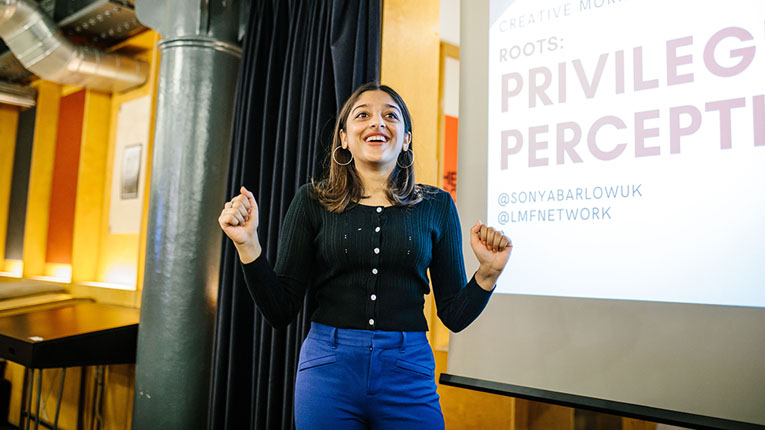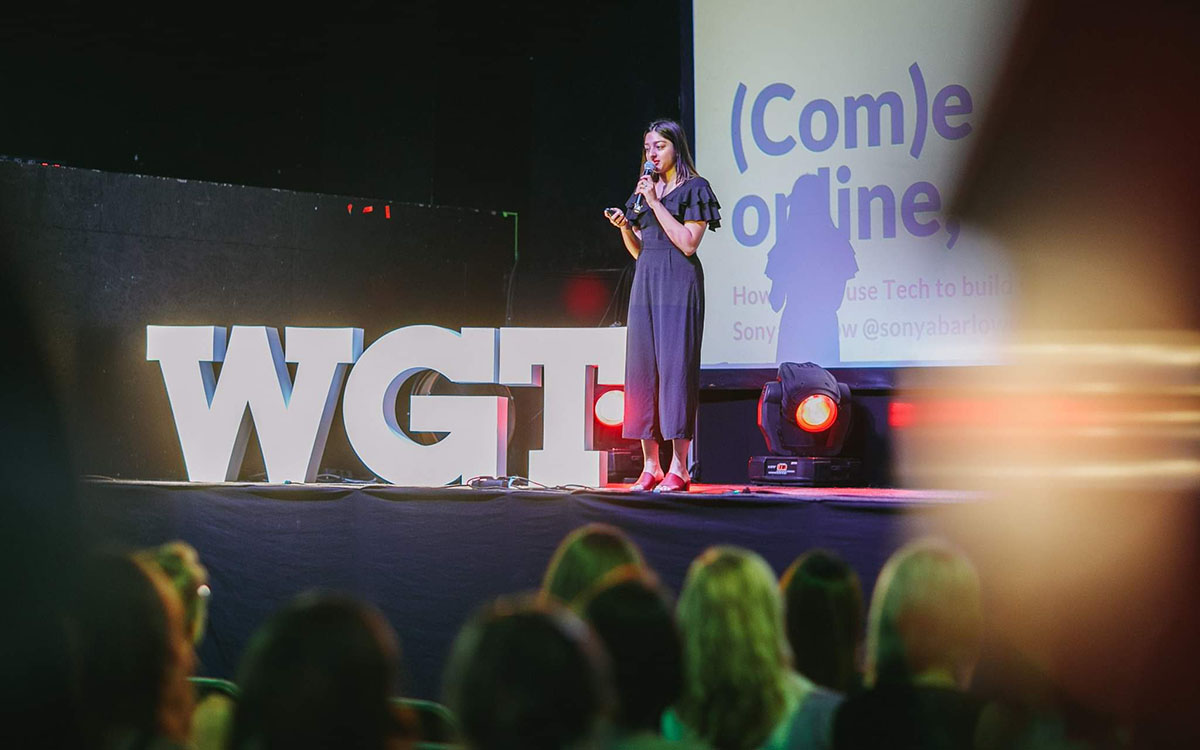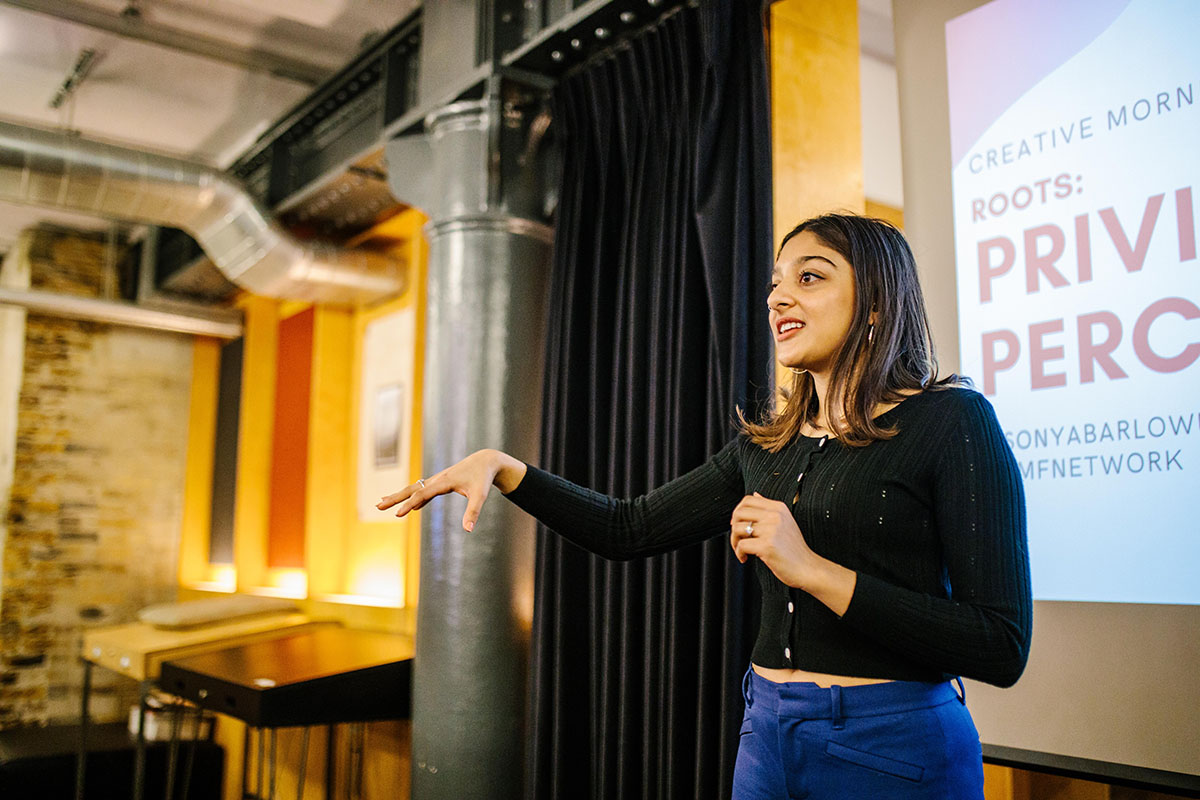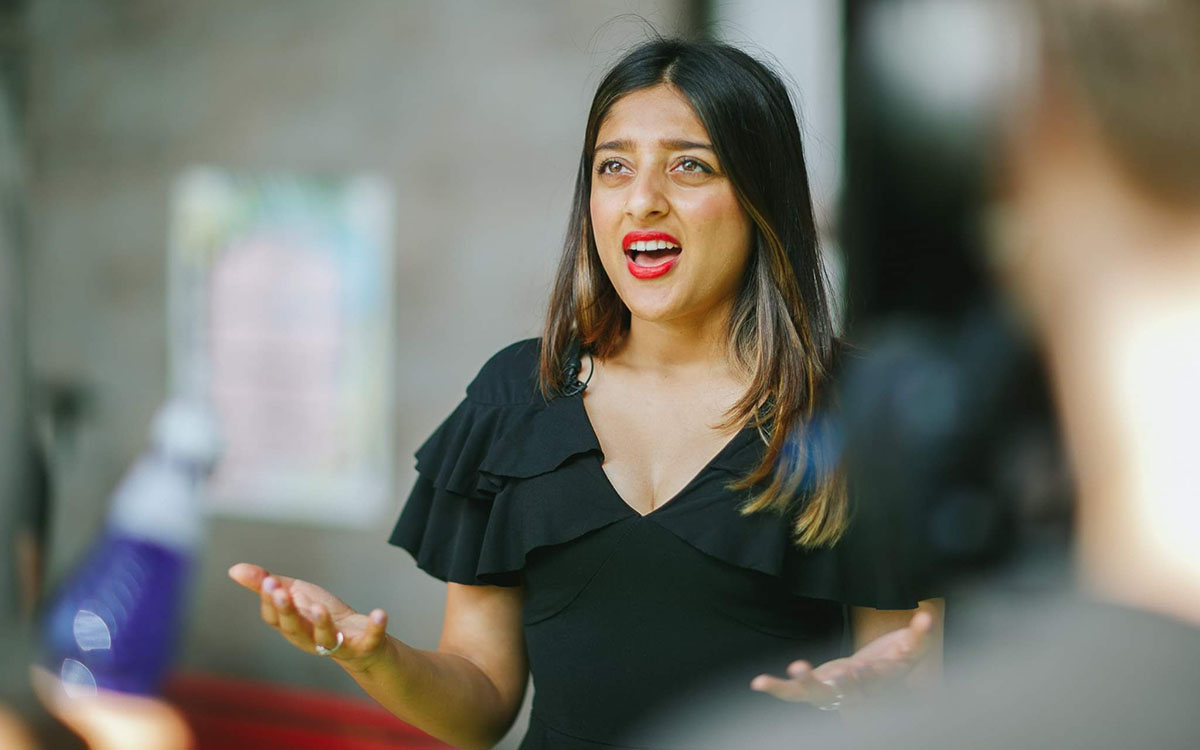Sonya Barlow on the need for business to break gender norms

Posted: Mon 8th Mar 2021
Award-winning entrepreneur Sonya Barlow went from a somewhat turbulent five-year career in tech to running her own diversity and inclusion consultancy: Like Minded Females (LMF). Her reason for founding it, though, didn't come from a good place.
Sonya was suffering with "a gap": she didn't have a community, nor a mentor. By launching LMF - which was never meant to be a business - Sonya discovered that this gap was felt by lots of other women and marginalised communities.
And so, by creating a network that provides life skills programmes, mentoring schemes, up-to-date research, community forums and corporate advisory, she set about filling the gap.
We caught up with Sonya to discuss not only her experiences, but her thoughts and ideas on what - from female entrepreneurship and diversity and inclusion standpoints - needs to change.
Sonya, at StartUp 2021 you explained how important it is to embed diversity and inclusion early on in a business's journey…
"It's vital to lay the right foundations from the beginning. Representation isn't just 'We need to have a black and a brown person'; it's 'We're doing a campaign - like launching a new product - so everyone sit down in a room and tell us if this is the right or wrong thing to say and do.'
"Businesses need to find out how people feel, and how people think, before they get to consumers. They need to make sure that consumers feel and believe in whatever it is they're trying to say.
"The question I ask businesses all the time is: at what point is your team too big not to be diverse? For me, the number is three. After this, you're consciously making an effort to ensure that you're filling different areas - and I don't just mean colours, genders and sexualities.

"My point is that representation isn't just 'We need to fill all the colours in the rainbow'; it's 'Let's make sure that the right people - consumers, colleagues - are in the room to save us from getting it wrong.'
"It's easier to create that foundation from the get-go when you're three people and there's no hierarchy. If you've got 8,000 people, and different processes for hiring, recruitment and negotiating salaries, then it's much harder.
"The output with larger companies is that they try to hire a woman for the sake of hiring a woman, when it's actually about making sure there's a shortlist that's equal, so everyone has a fair chance. The conversation needs to shift from equality to equity."
To what extent are things changing?
"Before the pandemic, things were changing. Were they changing at the rate we wanted? Absolutely not. But they were changing.
"The pandemic has unfortunately shown us that things are moving backwards. Women and marginalised communities are the ones losing out. The one silver lining is that it's brought up conversations around mental health, wellness, wellbeing and hybrid coworking.
"I always say to companies: the first thing you can offer people is flexible, hybrid working. That doesn't mean that people don't necessarily work their intended hours; it's about letting people work in a way that suits their needs and circumstances. It's also recognising that core hours - when team meetings are going to be - should be between 10 and 12. Between 12 and one, no one's going to have meetings because everyone needs time off for lunch.

"At a corporate level, change isn't as fast as it should be because budgets aren't being put where they're needed. I said at StartUp that companies would rather spend money on social media marketing than initiating meaningful change.
"At a start-up level, meanwhile, there's a problem of accessibility. Accessibility is key. It must be the word of 2021. It's about making processes fair, but also allowing everyone to feel like they can apply for - to use one example - funding. A whole demographic is being missed because they don't feel like they have a chance, so they don't try."
Founders from minority backgrounds who do secure funding, and who do launch successful businesses, still have to contend with additional challenges, right?
"Yes. Microaggressions question their ability. You have to be strong headed. The reality is that we're dealing with genderalised social norms and stereotypes that we have to break, and which are both oppressive and biased on ourselves as much as they are from other people. Like the example I just mentioned: a lot of people already think the system isn't there for them, so they don't even try.
"The only reason I founded LMF was that I'd felt pushed out from two out of three workplaces - like I didn't belong or needed to change to fit in. I was discriminated against, racially abused. What if people don't have extreme cases like this? What about those suffering small, constant niggles that haven't pushed them off the edge, but which affect their productivity, happiness and vibrancy?
"The book I'm writing is called Unprepared to Entrepreneur. In the first chapter I talk about your grey area - your bad place. I think every bad place makes for a great story. You know there's a problem, and you want to do something that fixes it. That's what drives a lot of great entrepreneurs forward. That's how things start.

"This is where I came from founding LMF. It wasn't meant to be a business. It was something to fill a gap. Working in tech, I didn't have a community. I didn't have anyone to talk to about career progression. Often, these gaps are felt by other people too.
"The difference comes when someone has enough confidence, strife or anger to do something about it. They use their superpower to do something on behalf of others. My superpower is that I'm able to communicate, which I can bring to the forefront and bring people together."
Going back to change: we're in the midst of a wider shift, aren't we, in terms of wider attitudes to inclusivity, sustainability and even work?
"What I talk about a lot in my workshops is a new generational shift - a new generation of workers, of consumers, of talent, that's fluid in its mindset. They are value lead; they are sustainability lead; they want to see real impact on a human level, rather than random percentage points of change which aren't significant in reality.
"Most companies haven't even managed to meet millennials in the middle. Now they've got a whole different generation to deal with. These people don't need to work for you because they can make an income from home in ways that weren't possible before.
"Companies need to make sure their environmental, social and corporate governance policies, their diversity and inclusion policies, their progression policies and their salary policies are clear and transparent - and fluid enough that the young professionals of tomorrow will both buy into their vision and their products and services. Fundamentally, from a business perspective, these are the same consumers who will be buying - so you want them on your team.

"They'd rather work to have the minimum income required to enjoy their lives than being set in a programme that's in a loop. It's robotic. That's where the cultural dynamic is shifting so hard. Again, diversity and inclusion isn't just putting a brown person on your senior stakeholder list - it's about making your policies and processes fair so the talent of tomorrow feels respected and valued.
"They're not like their parents or grandparents. They're not going to put up with nonsense. They're going to call you out on social media. They're going to write a blog about you."
Can I revisit the point you made at StartUp about companies spending money on social media marketing rather than actual diversity and inclusion practices?
"Is it community or is it social media spend? Is it democracy or is it digital advertising? What is it that companies are prioritising?
"For me, they're often just chasing likes and following the hype - they're not looking at meaningful engagement and actual value, they're looking at, ooh, this person has gone from zero to 50k followers in a month. Yes - because they've put 20 grand behind it.
"Are we going to work with them? The answer should be no. Communities don't need to be big in following; they need to be rich in substance."
Become part of the Enterprise Nation community
We're proud to have entrepreneurs like Sonya as members in our amazing community of small business owners. Join today for the full range of member benefits!
Get business support right to your inbox
Subscribe to our newsletter to receive business tips, learn about new funding programmes, join upcoming events, take e-learning courses, and more.
Start your business journey today
Take the first step to successfully starting and growing your business.
Join for free

